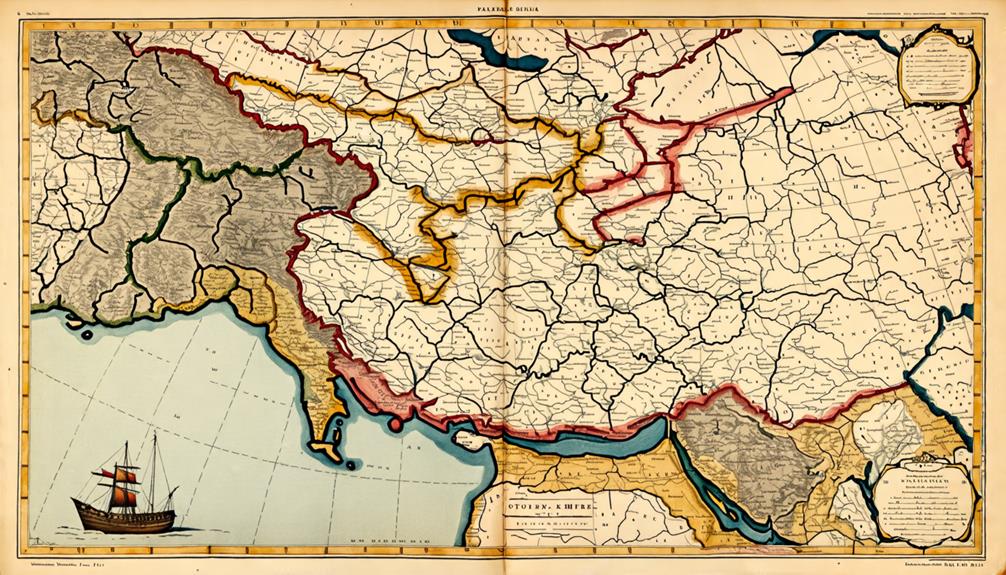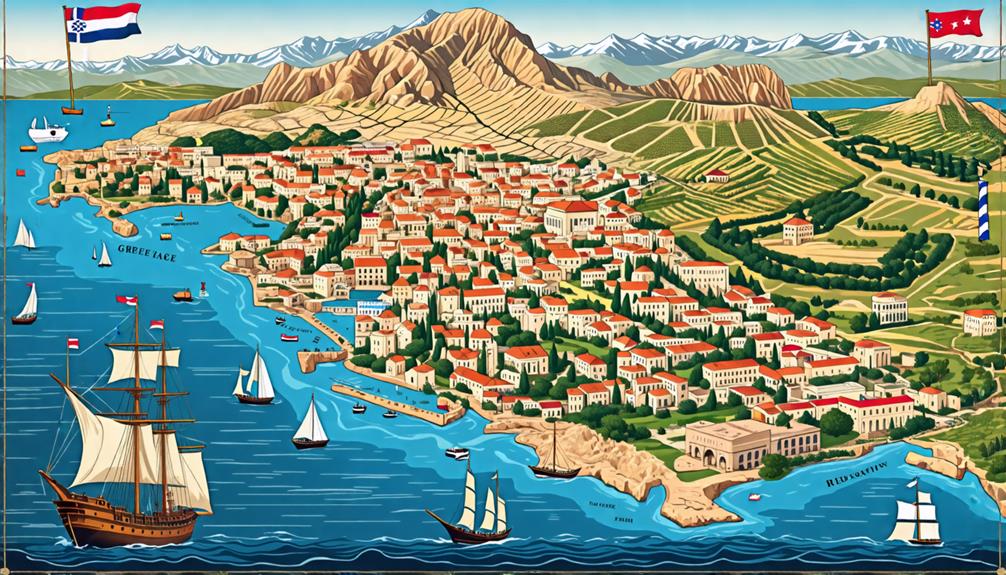What if Greece had failed to gain independence from the Ottoman Empire in the 1820s? This alternative history scenario explores a world where the Greek War of Independence was unsuccessful.
Imagine the ripple effects on history if Greece had remained under Ottoman rule.
How would this have impacted the nation's cultural identity, modernization, and the geopolitical landscape of the Balkan region and beyond?
Continued Ottoman Rule

One theory is that Greece might've remained under Ottoman rule well into the late 19th or even early 20th century. It could have meant a continued suppression of Greek culture and language, with Turkish being imposed as the official language in government and education.
Had Greece not gained independence in the 1820s, it's possible that a similar struggle for freedom might've occurred later, perhaps in the early 20th century, inspired by the rise of nationalism in the Balkans. This scenario did play out in other parts of the Ottoman Empire, such as Bulgaria, which gained independence in 1908 after a long period of Ottoman rule.
Cultural Identity Challenges
One theory is that remaining under Ottoman rule would have made it difficult for Greeks to maintain their distinct cultural identity. The Ottomans may have continued suppressing the Greek language, Orthodox faith, and cultural traditions in an effort to assimilate Greeks into their empire.
It's possible that resisting this cultural erosion while under Ottoman authority would have been a constant challenge for Greeks.
Interestingly, a similar scenario did occur later in history when the Soviet Union took control of many Eastern European countries after World War II and worked to suppress their unique cultural identities.
Delayed Modernization

Had Greece remained under Ottoman control, its modernization may have been significantly delayed compared to Western Europe. One theory is that the conservative Ottoman policies and lack of development in its territories could have slowed Greece's industrialization, educational progress, and political reforms.
It's possible that if Greece had eventually gained independence at a later date, it would have faced different challenges in catching up to the rest of Europe in terms of nation-building and modernization.
However, it's also conceivable that even under continued Ottoman rule, Greece might've found ways to gradually advance and develop over time, albeit at a slower pace than as an independent nation.
Geopolitical Implications
In an alternate history where Greece remained under Ottoman control in the 19th century, the geopolitical landscape of Europe and the Mediterranean could have unfolded quite differently. One theory suggests that without Greek independence, the Ottoman Empire may have maintained a stronger grip on its territories, potentially delaying or altering the course of its eventual decline.
It's possible that the Great Powers, such as Britain, France, and Russia, would have had to navigate a different set of alliances and conflicts in the region. The absence of an independent Greece as an ally could have meant shifts in diplomatic and military strategies among these nations.
While this specific scenario didn't occur, it's worth noting that other nations, such as Bulgaria and Serbia, did gain independence from the Ottoman Empire later in the 19th century. These events, although happening at a later date and under different circumstances, still had significant impacts on the balance of power in the region.
Alternate Balkan Dynamics

In this alternate history scenario, the continued Ottoman rule over the Balkans in the 19th century could have had major repercussions on the region's power dynamics and nationalist movements. One possibility is that the Ottoman Empire's grip on the Balkans would have remained strong, potentially hindering the independence aspirations of nations like Serbia, Bulgaria, and Romania.
The Eastern Question, which concerned the European powers' competition for influence in the Ottoman-controlled territories, might've unfolded in a significantly different manner. It's conceivable that without an independent Greece, other European nations could have intensified their efforts to assert dominance in the region, leading to heightened tensions and possibly conflicts.
Interestingly, a similar scenario did occur in the early 20th century when the Ottoman Empire allied with the Central Powers during World War I. This alliance led to the Empire's dissolution and the redrawing of borders in the Balkans, albeit under different circumstances than those of the 19th century.
Ripple Effects on Greek Diaspora
In an alternative history where Greece didn't gain independence, the global Greek diaspora would likely have taken a different trajectory. One possibility is that Greek communities abroad would have remained smaller and more fragmented without a unified homeland to rally around.
It's conceivable that Greek culture and language might've become more insular within these scattered enclaves, lacking the global reach and influence it has today.
Another theory is that the economic clout of the Greek diaspora would have been diminished in this scenario. Without a robust and independent Greek state to serve as a hub for trade, commerce, and international business ties, the diaspora's ability to establish a major global presence could have been hindered.
It's worth noting that if Greece had been absorbed by another power like the Ottoman Empire for an extended period, a push for independence might've emerged at a later date, potentially altering the course of this alternative history.
Conclusion
You'd never swipe right on this alternate timeline. A Greece still under Ottoman rule would face a slow erosion of its cherished identity and fall behind in the march of progress.
The Balkan powder keg might look very different, and the global Greek community would lose its cultural touchstone.
Although history unfolded differently, it's clear that an independent Greece was essential for preserving its rich heritage and shaping the region's destiny.

Leave a Reply